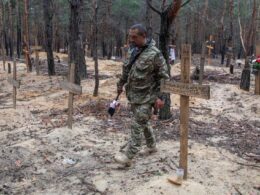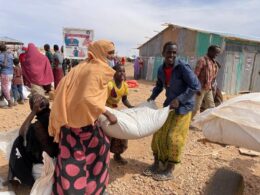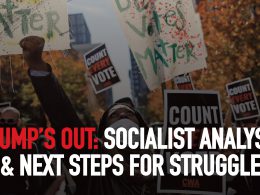By Serge Jordan
Bangladesh is experiencing a spectacular acceleration of history. On Monday, August 5, Prime Minister Sheikh Hasina resigned and fled the capital Dhaka in a military helicopter to the Hindon airbase in Delhi, India, as millions of people flocked into the streets to celebrate the end of her rule. Only half a year ago she was sworn in for her fourth consecutive term. Defying a nationwide curfew, huge crowds stormed her Palace, reminiscent of the scenes witnessed in Sri Lanka two years ago. What began as a university student protest movement has morphed into a full-blown uprising.
Student protests erupted in early July over the reintroduction of a longstanding quota system for public sector jobs that favors descendants of ‘freedom fighters’—those who fought for the country’s independence from Pakistan in 1971. This quota system, previously shelved by the government after large-scale protests in 2018, was reinstated by a High Court ruling in June this year. Despite actual descendants of freedom fighters making up less than 1% of the population, 30% of these jobs were reserved for them. This scheme had effectively become a disguise for the ruling party’s nepotism and patronage, catalyzing anger in a situation where two-fifths of Bangladeshi youth are out of work.
Under mass pressure, a new Supreme Court ruling on July 21 scrapped most of the quotas, reducing the ex-military quota from 30% to 5%, and allocating 93% of jobs based on merit, with the remaining 2% set aside for minority groups. This first victory for the students, proving their struggle effective, came with a bitter taste: it was achieved at the cost of a bloody repression by security forces and violent attacks by thugs associated with the ruling Awami League and its student wing, the Chhatra League. Over 200 people were massacred in the process.
The regime’s use of both concessions and violent measures to try and bring the student revolt under control only served to embolden and anger the movement further, while also attracting wider support. After a brief pause, the movement hit the streets again; demands for justice and accountability for the victims of the state crackdown, and for the Prime Minister to step down, like the slogan “Ek dofa ek dabi, Hasina tui kobe jabi” (“We have one demand; when will you go, Hasina?”) became the order of the day.
From the 1952 ‘Language Movement’ against the imposition of Urdu as the sole national language in what was then East Pakistan, to the 1969 mass uprising against the autocratic rule of Ayub Khan, to the movement against the military dictatorship of Hussain Muhammad Ershad in the late 1980s, student activism has played a pivotal role in the history of Bangladesh. A similar dynamic has been at play this time around. But Hasina’s overthrow can only be explained by the deeper groundswell of popular fury that had mounted like a tidal wave, sweeping through nearly every segment of society, including an expanding number of workers.
A hated regime
Hasina and her ruling party, the Awami League, has ruled the country with an increasingly authoritarian fist for nearly two decades. Since 2009, her regime has subordinated every part of the state apparatus to its needs, suppressing any serious sign of dissidence, including via forced disappearances and extrajudicial killings. Most of the country’s media are owned by businesses tied to the ruling party. Opposition parties like the Bangladesh Nationalist Party (BNP) and Jamaat-e-Islami (JeI) had their top leaders put in jail or forced into exile. All three successive parliamentary elections —in 2013, 2018 and 2024— were mired with violence against the opposition and vote rigging. The last general elections, held in January, saw a record low turnout of officially 40%, though the true figure is believed to be much lower.
Long hailed as a poster child of Bangladesh’s resurgence and economic development in foreign capitals, and as the world’s longest-serving female leader, Hasina built a regime floating in an ocean of corruption, of which the quota system is only one facet. Her government presided over an economic growth heavily dependent on an export-oriented garment industry exploiting predominantly female workers for meager wages, to the delight of foreign multinationals. When those workers demanded to live in dignity through a wave of strikes late last year, they were met with insults, mass arrests and police killings.
The treatment reserved for the protesting students this summer has been exceptionally brutal, with the regime’s repression resulting in the highest death toll in Bangladesh since its Liberation War in 1971 —not to mention the widespread torture, injuries, and arrests. A complete shutdown of mobile internet and broadband services lasted for 10 days. Far from quelling the revolt, this violence became a hugely radicalizing factor, precipitating Hasina’s downfall.
Sunday, August 4 was one of those days during which, as Lenin famously said, “decades happen”. It was the first day of a non-cooperation campaign launched by the Students Against Discrimination, the body who has been leading the student protests. The organisers had urged people not to pay their taxes and utility bills, not to show up for work, and for government and private institutions, offices, courts, mills, ports and factories to remain closed. Many workers followed suit, and were seen joining the non-cooperation movement —including in the economically vital garment sector.
Despite Sunday being a workday in Bangladesh, numerous shops and banks in Dhaka remained closed. The call for Hasina’s resignation resonated from major cities to small villages, with millions of protesters taking to the streets. As clashes between pro-regime forces and protesters intensified, more than 100 people were killed on that day alone, bringing the death toll since the movement began to over 300. The casualties included over a dozen policemen and half a dozen Awami League supporters, as many of the youth had come prepared to defend themselves. The news that another hundred people had died brought even more protesters to the streets, in full defiance of the curfew imposed by the government.
On Monday morning, as the Students Against Discrimination had called for a ‘March to Dhaka’ in response to this new wave of state terror, more and more people descended on the capital. A complete internet shutdown was imposed, lifted at 12.30 local time. For Hasina, however, it was already too late.
The role of the army
According to Indian news website The Quint, Army Chief General Waker-uz-Zaman was under pressure from his subordinate officers not to order fire on protestors, indicating mounting discontent and vacillation among the troops —even open sympathy for the movement in some areas. On Sunday, videos surfaced online showing soldiers safeguarding protesting students from attackers belonging to the Awami League.
On Monday morning, Waker-uz-Zaman instructed the divisional commanders to refrain from firing —despite the Prime Minister having issued clear instructions to the army to thwart the march to her office by all means. Once it became clear that the Armed Forces would not come to her rescue, Sheikh Hasina’s fate was sealed.
Shortly after Hasina’s resignation, the army top brass announced that a new interim government would be formed, and talks would be engaged to that effect with the student leaders and major opposition parties. On television, Waker-uz-Zaman urged the public to exercise patience and keep trust in the army. “We will also ensure that justice is served for every death and crime that occurred during the protests”, he said. This is like a fox promising to guard the henhouse. Waker-uz-Zaman is none other than Hasina’s uncle-in-law! Without his and the military’s help, Hasina would not have been able to exert such tyranny.
As revolutionaries have learnt the hard way time and again, from Tunisia to Sudan to Sri Lanka, the escape or overthrow of a regime’s head, while igniting revolutionary potential, does not on its own ensure its realisation. The rotten machinery of the previous regimes cling tenaciously to its power, while the ruling class scrambles to form a new power arrangement that benefits them, attempting to restore the status quo against which the masses have just risen.
Among the names originally flagged up for the new interim government was retired General Iqbal Karim Bhuiyan, who, as army chief, conspired with the Awami League to rig the 2014 general election. Such reactionary and corrupt figures personify the old establishment’s attempt to maintain control.
As for the main opposition parties, they offer no genuine alternative either: their record shows they uphold the same system of patronage and close-knit collaboration with international big business as the Awami League. The right-wing BNP did not declare its support for the student struggle until July 18, hoping to opportunistically capitalize on a movement with which it had no involvement.
Key leaders of the Students Against Discrimination proposed an interim government led by Nobel Laureate Dr Muhammad Yunus, the so-called ‘father of micro-credit’. As this article is published, it is reported that Yunus will indeed lead the interim government. This decision comes following negotiations between President Mohammed Shahabuddin, the leaders of the student protests, the chiefs of the military, business leaders and ‘civil society’ members.
This is a major mistake from the student leaders, who should stay out of any such deal with the ruling class. Business tycoons, military generals and a President who has been closely aligned with the Awami League throughout his career should have no say over the course of the uprising! Engaging representatives of the movement into such undemocratic plots is an age-old tactic to provide a façade of legitimacy to the maneuvers of the counter-revolution, and placate the struggle on the street. Besides, while Yunus has rhetorically supported the student movement, he remains a banker and champion of the ‘free market’, whose microcredit model has done more to commodify poverty than to alleviate it. His notion of “selfless capitalism” is a contradiction in terms, as profit maximization and exploitation are rooted in capitalism’s DNA.
Oppose entrusting military leaders and politicians who played no role in the uprising
By braving horrific violence and forcing the departure of Sheikh Hasina, the revolutionary movement has achieved an important victory, one that millions of people in Bangladesh and the diaspora rightfully celebrate. Many international rulers and large corporations with vested interests in Bangladesh’s notorious sweatshops are undoubtedly anxious for the revolutionary genie to be contained.
Not least among them is Modi’s government. Having nurtured close ties with Hasina’s regime for years, it fears the geopolitical fallout of a power shift in Bangladesh if the country were to slip from the Awami League’s hands. Perhaps most importantly, it is apprehensive about witnessing a second mass revolt toppling an autocratic ruler right on its doorstep within two years. The example set by the Bangladeshi revolutionary masses is indeed a powerful source of inspiration for workers, youth and oppressed people in the region and globally, and one that should be defended and emulated.
Yet Monday’s victory was forged solely through the mass movement’s own strength, and that vital lesson, drawn from the blood of hundreds of martyrs, must be remembered going forward, to prevent this victory from being usurped. The revolutionary people must place no trust in, nor involve themselves with, the behind-the-scenes maneuvers to form a government with figures who played no role in this heroic struggle. These moves aim to wrest control from the uprising and ultimately crush it.
Instead, the movement must sustain and deepen its grassroots momentum, building its own democratic structures for true revolutionary representation, independent from all factions of the capitalist ruling class. Establishing committees of the uprising in all localities, educational institutions, workplaces, and neighborhoods would help democratically discuss demands and coordinate actions, defend against attacks from state and para-state forces, and systematically challenge the corrupt state apparatus and the oppressive rule of factory managers. It would also lay the foundational stones for a revolutionary government consisting of genuine representatives democratically elected from and accountable to the students, workers and all the fighting forces of the uprising.
These forces have demonstrated remarkable energy, heroism, and organizational skill—qualities that point to the future. On Tuesday, with the police on strike, young people and students took charge, managing traffic and organizing road cleanup. This snapshot reveals the potential for a society rooted in revolutionary democracy and genuine solidarity. But this potential needs to be harnessed and organized effectively, or it will succumb.
The movement must mobilize and boldly advance with its own set of demands, presenting a programme that can draw in all progressive sections of society in a struggle for revolutionary change. It must fight for true democracy at all levels —the right to strike, to form unions and to protest with no fear of harassment, the immediate release of all detained students, protesters and political activists, the disarmament and arrest of all those responsible for killing protestors; it could even campaign for soldiers to elect their own officers and in this way, challenge the arbitrary power of the army chiefs and facilitate the purge of the most notorious figures in the armed and security forces.
Some reports suggest that Hindus have been targeted by radical Islamist elements amid the general unrest. While these reports are being wildly exaggerated by the Hindu far-right and Modi supporters in India to discredit the Bangladesh uprising and overshadow examples of interfaith solidarity (such as Muslims guarding temples and churches across the country), the danger of religious communalism remains real. The movement must stand firm against any form of oppression and persecution of minorities and against any attempt at fomenting communal division, and uphold the total equality of rights for all sections of society. As a student quoted by CNN explained, “Until our religious minorities and ethnic minorities are protected and justice comes to them too, the nation is not free.”
Of course, the struggle for decent jobs and a living wage for all, indexed to inflation, should be high up in the movements’ agenda. But these issues cannot be separated from the bigger picture: the fact that Bangladesh’s wealth flows predominantly to a small elite and foreign entities, while more and more Bangladeshis are pushed into dire poverty, hunger, wage compression and unemployment…Sheikh Hasina and her family themselves hold considerable wealth, with major investments and assets in agricultural land, real estate, fish farming and others. New York-based research firm Wealth-X identified Bangladesh as among the top five fastest-growing countries for “high net-worth individuals”. According to Oxfam’s 2023 Annual Inequality Report, the wealthiest 10% of the population now control 41% of the country’s total income, while the bottom 10% gets only 1.41% of the share.
Any ‘interim’ government will also be summoned to pursue the austerity and privatisation measures that the Hasina-led government has agreed to in 2023 as conditions for a $4.7 billion IMF bailout —only worsening the chronic unemployment, poverty wages, inequalities and terrible working conditions gripping the life of millions.
The uprising must advocate for radical measures to address the systemic and parasitic plunder of the economy, at the heart of the movement’s origins. This entails rejecting the anti-poor diktats from the IMF, and placing the country’s strategic economic entities — such as the banks, the energy sector and the garment industry — into democratic public ownership and workers’ control, with the aim of planning production and reorganizing society according to human needs rather than private profit. With the wealth of society thus collectively managed, a general shortening of the working week and major public investment in sustainable and socially useful projects could be undertaken. These measures could create millions of jobs, and vastly enhance everyone’s quality of life. A revolutionary socialist transformation is the only way to break the endless suffering that capitalism has in store for the students, youth, workers, peasants and poor people of Bangladesh.












